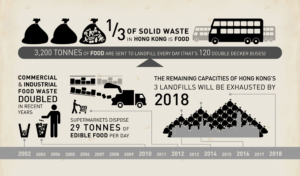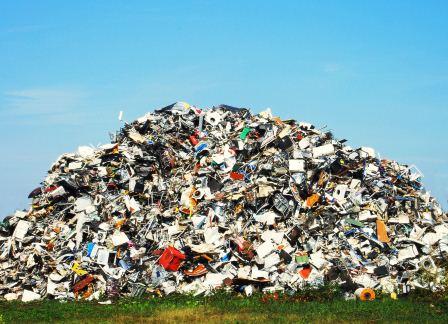Wasting Away
by Henrieke van Kampen and Cherry Kwan
[This blog is part of a series on the Gospel and the Environment]
God of Justice
“Vanity of vanities, says the Preacher, vanity of vanities! All is vanity” so goes the start of Ecclesiastes. These words ascribed to King Solomon reflect that although he has experienced much pleasure and wealth, life is vanity.
How often do we agree with that statement? We may instead believe that in order to not live a vain life, we should consume as much as possible to create the luxury lifestyle we secretly believe we deserve. Yet, the preacher tells us life is not about acquiring wealth. So what is it about?
In the first blog post in this series we explored what dominion looks like and how we could use our given dominion for good – it focused on our relationship with God. The second post showed that our relationship with nature is also part of being a witness of God. This third post will show that our relationship with our environment is also an expression of care for our neighbour, especially the marginalised in society.
Care for nature and the poor can go hand in hand. God does not forget the poor and the foreigner, and the law in the Old Testament states as follows:
“‘When you reap the harvest of your land, do not reap to the very edges of your field or gather the gleanings of your harvest. Leave them for the poor and for the foreigner residing among you. I am the Lord your God.’” (Leviticus 23:22).
This verse shows that we are not to act out of greed but rather out of concern for the marginalized and the way we do it is by treating the environment in a certain way. One could think of Boaz in the story of Ruth as someone who made a decision that positively impacted Ruth and Naomi who were living on Boaz’ generosity:
“Boaz gave orders to his men, “Let her [Ruth] gather among the sheaves and don’t reprimand her. Even pull out some stalks for her from the bundles and leave them for her to pick up, and don’t rebuke her.” (Ruth 2: 15-16).
God reminds us through Jeremiah that He desires good things for us and to enjoy the land He has given to us, yet we tend to defile and take His provision for granted (Jeremiah 2:7).
The Aftermath of Consumption
The poor often get impacted by nature which at times is a consequence of the rich’ consumption. For example, many scientists believe that climate change affects the El Niño phenomenon, which affects the weather around the world, and can have damaging impacts on fisheries, agriculture, ecosystems, energy demand and air quality. Carbon emissions are generated from transportation, manufacturing, and land use changes–all of which are precursor activities of consumption–have drastically increased the atmospheric concentration of carbon dioxide to levels not seen in the last 3 million years. The primary producers (at least defined by countries) of atmospheric carbon are currently China, US, the EU and India, or if defined cumulatively over the years by countries– US, EU, Japan and Canada. We don’t purport to chalk it up to just certain countries or define blame in terms of just countries, but this does shed some light on where it is coming from.
It also looks like developing, much poorer places and people are bearing the consequences, as they lack the infrastructure and resources to protect themselves. An example close to home would be the Phillipines; Typhoon Haiyan displaced more than 4 million people, and left 7000 dead. If the same Typhoon were to sweep Hong Kong, it may just be a celebration of a work-free day lounging at home watching Netflix and ooh-ing over a T10, and maybe a few casualties from the elderly living on the fringes, or those who purposely go hiking in the storm (and the firefighters who try to get to them). We would get some flooding in the New Territories and in Heng Fa Chuen (complete with a viral video of the crazy waves smashing through the railings). But overall, our brightly lit skyscrapers and world-class bridges are built to withstand the powerful onslaught of wind and water as opposed to the flimsy shacks in the Philippines.
Corporate Greed
Behold, this was the guilt of your sister Sodom: she and her daughters had pride, excess of food, and prosperous ease, but did not aid the poor and needy. (Ezekiel 16:49)
While business and corporations were designed to foster human flourishing by creating employment and development, we can see how the fall has touched this area of life also. Certain corporation may seek to accelerate our consumption rate, and aggravates our perceived needs by promising to satisfy, to solve problems or just to make us happy. It is consumerism that drove the world’s economy to new heights, yet in the quest for money, companies have often resorted to legal arbitrage (i.e. using workers in countries with poor employee protection, and taking full advantage of this). The Rana Plaza collapse shed light on what this really means – a garment factory in Bangladesh refused warnings to avoid using a building due to structural defects until it collapsed, killing and injuring more than 3500 people including children and many women. It was a hazardous working condition to start, with workers being paid very minimally with long working hours.
For corporations, their stakeholders are shareholders, so cutting costs result in increased profit margin and cheaper prices for the end-users who will only see the monetary price-tag and not the sweat or pollution behind it. When this mentality is adopted, many people suffer.
This all goes against the Bible’s call to be generous and fair to the poor.
“For six years you are to sow your fields and harvest the crops, but during the seventh year let the land lie unplowed and unused. Then the poor among your people may get food from it, and the wild animals may eat what is left. Do the same with your vineyard and your olive grove. (Exodus 23:10-11)
Consequences for Those Without a Choice
The reality is that consumerism has an effect on those less fortunate. The examples can go on and on– oil spills in rural areas, or flooding of places only the poor can afford to live, resulting in climate change refugees (it’s a real term). The so-called ‘cancer villages’ in China is a result of the rural-urban divide, where death rates in communities near chemical, pharmaceutical and power plants far exceed the national average. The link between water and air pollution and poor health is well documented.
What about future generations, who must live with junk in the air and water? In some ways, this current generation is already living with the decisions our ancestors have made back in the industrial age.
While it may be hard to see how Scripture speaks directly about corporations that take little precaution to prevent oil spills, the Bible does state clear principles of how to relate to work, people and God’s creation (which encompasses more than just humanity). It is therefore important to understand the consequences of certain actions and see if they truly honour God in his command to love others.
Taking The Plank Out of Our Eye
While the world is complaining about corporate greed and inaction, we should not forget that the Christian consumer has a call also. Then he said to them, “Watch out! Be on your guard against all kinds of greed; life does not consist in an abundance of possessions.” (Luke 12:15). Jesus tells us over and over again the dangers of being driven by our desire to want more. Advertisements do not even hide their goal; one music streaming company even claims that “we all know, more is better”. While we should keep corporations accountable to certain standards, we should also remember that God is keeping us to a certain standard.
The wages of sin is death. Indeed, the effects of community sin are serious. We do not think of buying something as being sin, but the cumulative effects of our ‘tiny’ acts of greed, of adopting a shopaholic lifestyle, and normalizing the behaviour (i.e. everyone’s doing the same thing!) actually does result in consequences that we may not see or hear about. Every change in season could be accompanied wanting to buy the newest thing which results in bringing bags of ‘old’ clothes to the Salvation Army bin which makes us feel okay because we’re donating.
In Hong Kong, we can see how lavish we are just by taking a look at how much we throw out.

Source: https://foodsaving.weebly.com/food-waste-in-hong-kong.html
We do not live in a vacuum but in a global community. Causation is often complex, and are areas of scientific debate (i.e. is the typhoon really a result of global warming, or is it too remote?), and blame is even more complex (i.e. how can we attribute blame to a country– is it not just the big corporate’s fault?) and are areas of philosophical debate. But let us not use the ambiguity or the next scientific article as an excuse to live however we want. As Christians in an affluent society, we must remember that we live in a global community where our individual and collective choices do make a difference. Taking an extended view of ‘loving our neighbours’, do we not have an obligation to safeguard the standard of living of fellow human beings who share this planet? Or are our material aspirations and convenience more important than people, causing us to consume thoughtlessly?
While it is an important call, it is also a difficult call. While we can look at our behaviour, we should also have a look at what drives this behaviour. Why is it important to us to have the newest clothing items? Is it because we care about our image or what others think or say about us? These are areas to which Jesus could speak, and that should not leave unaddressed. Yet, at the same time, we can have faith that God desires to renew our hearts.
A Land Promised
While we can become quite overwhelmed or sad when we look at the current state of the environment, we can also have hope in this future land God has promised us. The patriarchs were on a journey to the land flowing with milk and honey, where the crops would grow and the harvest would be plentiful. This is still our journey today. We work towards safeguarding our home and loving our neighbours and by doing so, we can also have the hope that God would one day restore this world in a way we only dare to dream.

